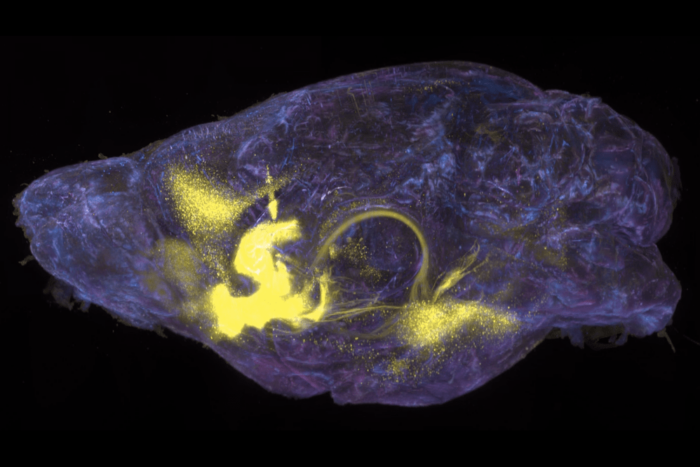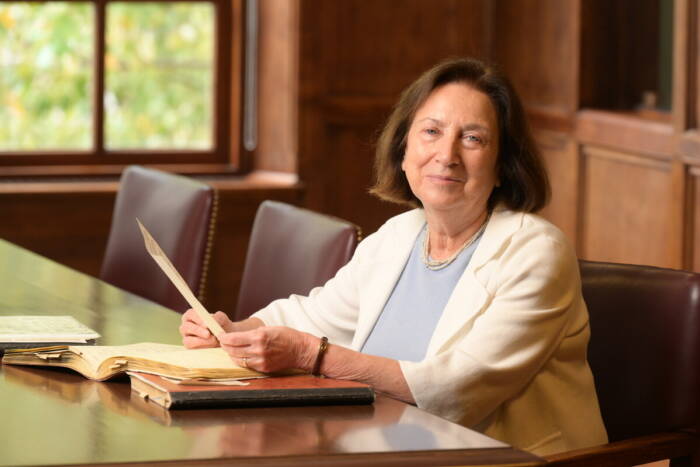Two Rockefeller scientists elected to Institute of Medicine
Rockefeller University scientists Robert B. Darnell, head of the Laboratory of Molecular Neuro-oncology, and Titia de Lange, head of the Laboratory of Cell Biology and Genetics, have been elected to the Institute of Medicine, the health and medicine branch of the National Academy of Sciences. Announced today at the institute’s annual meeting in Washington, D.C., Darnell and de Lange are among 65 new members and five foreign associates elected this year.
Election to the Institute of Medicine is considered one of the highest honors in the fields of health and medicine and recognizes individuals who have demonstrated outstanding professional achievement and commitment to service.
Darnell, who is Robert and Harriet Heilbrunn Professor and a Howard Hughes Medical Institute investigator, focuses on understanding a group of rare brain diseases, the paraneoplastic neurologic disorders (PNDs), and how they arise in conjunction with immune responses to cancer. Pursuing the function of the PND antigens, Darnell’s lab has pioneered insights into the role of neuron-specific RNA binding proteins in neuronal biology and disease, including the Nova proteins he discovered and the related FMRP protein — the protein lost in Fragile-X mental retardation. Darnell’s lab also has shown that the immune systems of PND patients thwart tumors with what begins as a classical antiviral response: The patients’ T cells produce antibodies and T cells that recognize the neuronal antigens found within their tumors. They also discovered that apoptotic tumor cells serve as potent instigators of this immune response in PND patients, and are developing cancer vaccines for use in small-scale clinical trials performed at The Rockefeller University Hospital to mimic PND tumor immunity.
Darnell joined Rockefeller University in 1992 as assistant professor and associate physician at The Rockefeller University Hospital. He was named associate professor in 1997 and professor and senior physician in 2000. In 2002 Dr. Darnell was appointed investigator at the Howard Hughes Medical Institute and named Heilbrunn Professor at Rockefeller. Darnell’s awards include the Burroughs Wellcome Fund Clinical Scientist Award in Translational Research in 2000, the Derek Denny-Brown Young Neurological Scholar Award in 1998 and the Irma T. Hirschl Trust Career Scientist Award in 1996.
de Lange, who is the Leon Hess Professor at Rockefeller and an American Cancer Society Professor, focuses on how telomeres protect chromosome ends. de Lange identified a protein complex at telomeres, called shelterin, and has shown how this complex hides the chromosome end from the cellular machinery that detects and repairs broken DNA ends. Telomeres undergo erosion in the early stages of cancer development and de Lange’s work has clarified how the loss of telomere function generates genome instability and can drive cancer progression.
A native of the Netherlands, de Lange received her Ph.D. from the University of Amsterdam, and came to Rockefeller University in 1990. She is a foreign associate of the National Academy of Sciences and has received the G.H.A. Clowes Memorial Award from the American Association for Cancer Research, the Paul Marks Prize for Cancer Research and the National Institutes of Health Director’s Pioneer Award, among other honors.
Established in 1970 by the National Academy of Sciences, the Institute of Medicine has become recognized as a national resource for independent, scientifically informed analysis and recommendations on health issues. Institute studies and initiatives during the past year include, among many others, a review of the long-term effects of traumatic brain injury among military personnel; an assessment of the health effects of lack of insurance; and a blueprint for American leadership in advancing global health. With this year’s election, the institute counts 1,649 active members, 72 emeritus members and 96 foreign associates. Sixteen Rockefeller University scientists are Institute of Medicine members.


